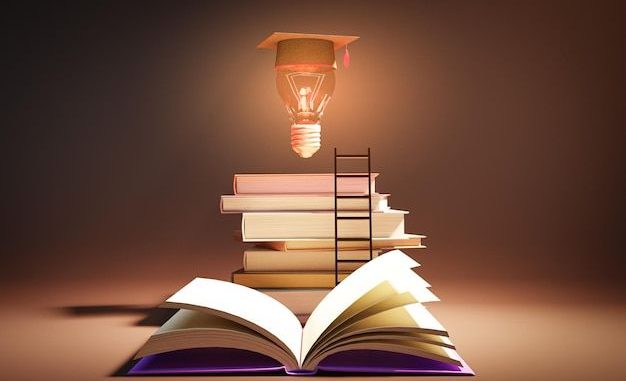
While “Think Better, Learn Faster: Modern Strategies for Gaining Knowledge” does not appear to be the exact title of a specific, widely recognized book, course, or article, the phrase itself encapsulates a significant area of interest in personal and professional development. Numerous modern strategies exist to help individuals enhance their cognitive abilities and accelerate their learning processes.
Here’s an overview of key strategies and concepts related to thinking better and learning faster in the contemporary world:
I. Strategies for Thinking Better:
- Cultivate Cognitive Skills:
- Critical Thinking: Develop the ability to analyze information objectively, identify biases, and form reasoned judgments. This involves questioning assumptions and evaluating evidence.
- Problem-Solving: Enhance skills in identifying complex problems, breaking them down, and developing creative and effective solutions.
- Decision Making: Improve the process of making choices by understanding cognitive biases (as detailed in works like Daniel Kahneman’s “Thinking, Fast and Slow”), weighing options, and trusting your expertise in relevant areas. Making minor decisions quickly can free up mental resources for more critical issues.
- Mental Flexibility: Train your brain to adapt to new information and switch between different concepts or tasks efficiently.
- Mind Management Techniques:
- Mindfulness and Meditation: Regular practice can improve focus, reduce stress, and enhance cognitive functions like attention and working memory.
- Avoid Multitasking: Focus on one task at a time to improve efficiency and depth of thought, as research suggests multitasking often hinders performance.
- Brain Training: Engage in activities that challenge your mind, such as puzzles (Sudoku, crosswords), learning a musical instrument, or engaging in strategic games.
- Lifestyle Factors:
- Physical Exercise: Regular aerobic exercise boosts blood flow to the brain, supporting overall brain health and cognitive function.
- Adequate Sleep: Crucial for memory consolidation, problem-solving, and overall mental sharpness. Most adults need 7-9 hours of quality sleep.
- Healthy Diet: Nutrient-rich foods support brain health and optimal cognitive performance.
II. Strategies for Learning Faster:
- Effective Learning Techniques:
- Active Recall: Actively retrieve information from memory (e.g., through self-quizzing or flashcards) rather than passively rereading material. This is a cornerstone of “Make It Stick: The Science of Successful Learning” by Peter C. Brown et al.
- Spaced Repetition: Review material at increasing intervals over time to enhance long-term retention.
- Interleaving: Mix different subjects or types of problems during study sessions rather than blocking similar material together. This can help in developing a better understanding of the distinctions between concepts.
- Elaboration: Connect new information to existing knowledge by explaining it in your own words or relating it to personal experiences.
- Teach Others (The Protégé Effect): Explaining a concept to someone else (or even pretending to) can significantly deepen your understanding and recall.
- Handwritten Notes: Taking notes by hand can be more effective for learning and remembering conceptual information than typing notes verbatim, as it often involves more active processing.
- Optimize Your Learning Process:
- Chunking: Break down large amounts of information into smaller, manageable units.
- Focused Sessions and Breaks: Study in focused blocks (e.g., Pomodoro Technique) with short breaks in between to maintain concentration and prevent burnout.
- Varied Learning Methods and Environments: Experiment with different ways of engaging with material (reading, watching videos, hands-on practice) and occasionally change your study location to strengthen learning.
- Napping: Short naps can aid in memory consolidation and improve learning outcomes.
- Leverage Modern Tools (with caution):
- While technology offers vast resources, it’s crucial to use them actively. Tools for creating digital flashcards, mind maps, or accessing educational content can be beneficial if paired with sound learning principles.
- Be mindful of distractions from technology and cultivate focused attention.
III. Foundational Habits for Both:
- Growth Mindset: Believe that abilities and intelligence can be developed through dedication and hard work. This mindset fosters resilience and a willingness to embrace challenges.
- Curiosity and Continuous Learning: Cultivate a genuine desire to learn and explore new subjects.
- Reflection: Regularly reflect on what you’ve learned and how you’re learning to identify areas for improvement.
- Goal Setting: Define clear learning objectives to provide direction and motivation.
Notable Books and Resources in this Domain:
While not matching the exact searched phrase, many influential books delve into these topics:
- “Thinking, Fast and Slow” by Daniel Kahneman: Explores the two systems that drive the way we think.
- “Make It Stick: The Science of Successful Learning” by Peter C. Brown, Henry L. Roediger III, and Mark A. McDaniel: Details research-backed strategies for effective learning.
- “Limitless: Upgrade Your Brain, Learn Anything Faster, and Unlock Your Exceptional Life” by Jim Kwik: Offers techniques for improving memory, speed-reading, and overall brain performance.
- “Atomic Habits” by James Clear: Focuses on how small, consistent habits can lead to remarkable results, applicable to learning and cognitive improvement.
- “A Mind for Numbers: How to Excel at Math and Science (Even If You Flunked Algebra)” by Barbara Oakley: Provides practical strategies for learning, particularly in STEM fields, but applicable broadly.
- “Moonwalking with Einstein: The Art and Science of Remembering Everything” by Joshua Foer: A journalistic exploration into the world of memory championships and techniques.
In conclusion, while “Think Better, Learn Faster: Modern Strategies for Gaining Knowledge” might not be a specific title, the pursuit it represents is well-supported by a rich body of research and practical advice from cognitive psychology, neuroscience, and education. By implementing these modern strategies, individuals can significantly enhance their intellectual capabilities and learning efficiency.
Leave a Reply